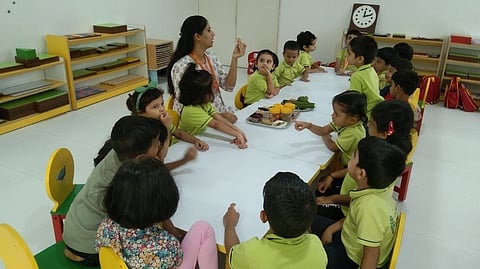

BHUBANESWAR: The Odisha government is all set to implement the National Education Policy (NEP) 2020 at the school level from April 1, which marks the beginning of the 2025-26 academic session, School and Mass Education minister Nityananda Gond said on Thursday.
With this, ‘Shishu Vatikas’, aimed at extending pre-school education to children in the 5-6 years age group, will also become functional in all primary schools. “Shishu Vatikas will be opened as part of the NEP under the guidance of Chief Minister Mohan Charan Majhi and Union Education minister Dharmendra Pradhan,” Gond said.
‘Pravesh Utsav’ and ‘Khadi Chhuan’ programmes will also be celebrated in all schools on April 2 for preschoolers who will be enrolled to Shishu Vatikas and Class I this year. The chief minister will distribute invitation letters to the families of the children who would be admitted to schools between March 17 and 19, to highlight the significance of the programmes. The ‘Pravesh Utsav and Khadi Chhuan’ events will continue till April 5.
Shiksha Sachetanata Rathas will also be flagged off at the block-level on April 2 to identify out-of-school children and their admission in age-appropriate classes.
School and Mass Education (SME) secretary Shalini Pandit has asked the district collectors to take appropriate measures for smooth functioning of the Shishu Vatikas and celebration of Pravesh Utsav and Khadi Chhuan events.
As per the order of the SME department, the Shishu Vatikas will currently be run in primary schools using the existing manpower and infrastructure, and the instructional hours for Shishu Vatika classes will be from 10 am to 4 pm. The directorate of Technical Education and SCERT has developed workbooks for the children to be enrolled for the pre-school education.
Play-based learning method will be used for these students for which primary grade teachers will be provided training by March 15. The students in Shishu Vatikas will also be provided with a learning kit, including a school bag and stationery to encourage their active participation in the classroom.
For effective implementation of the initiative, all collectors will open a dedicated cell at the district level to extend hand-holding support to the teachers in adopting effective classroom practices and monitor the progress of the mission on a regular and periodic basis. The additional infrastructure and pedagogical support will be provided to the primary schools in a phased manner.